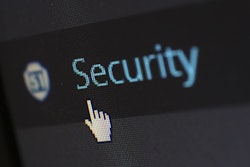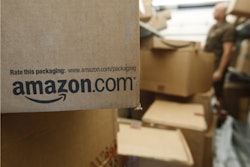
In Asia, where so many factories used by major U.S. and European brands are concentrated, business is based on relationships and reputation. A factory owner might have a friend or acquaintance who sells shoelaces or stitching, and choose to buy from that person, even if the goods are not authentic. The decision to use counterfeit components is just as often driven by a desire to honor long-standing relationships—or the need to meet a looming deadline—as it is by a desire to reduce costs or cut corners. Once a deal is made with counterfeit vendors, however, a relationship is forged—one that is much more likely to be utilized in the future when additional materials are needed.
The damage posed by counterfeits is far-reaching. The International Chamber of Commerce’s Business Action to Stop Counterfeiting and Piracy (BASCAP) estimates that counterfeit and pirated products drain the global economy of as much as $1 trillion each year, with 2.5 million jobs lost as a result. Counterfeits can also damage a company’s reputation as a provider of quality products. Fakes are rarely crafted up to a respected company’s stringent quality standards, and often use lower-quality technology and materials. Customers who end up with a faulty or ineffective counterfeit rather than the true product may lose trust in the brand.
With the complexity of today’s supply chain, fighting counterfeiting requires the collaboration of the entire supply chain. The more members of the chain you have on your team, the better equipped you (and they) are to prevent damage to your credibility and escape the hundreds of billions lost due to counterfeiting every year. One of the most critical roles, and one that’s often underutilized, is that of the distributor. Working with a small, trustworthy group of authorized distributors can be a brand’s greatest weapon in this battle.
Unauthorized distributors sell counterfeits in a variety of ways, including forging letters of authorization from the brand or constructing websites that claim they are authorized distributors. Having a close-knit distribution network mitigates some of the problem by providing buyers with a single source of authentic product.
Establishing strong, long-term partnerships with a small group of distributors, rather than an extensive web of companies, also helps create a culture of accountability. Having designated and trusted distribution partners—for example, using a single distributor in each country—can ensure a clean chain of custody for goods: If a factory purchases items from anywhere else, everyone involved runs the risk of getting counterfeit products.
These long-term relationships build trust, and link distributors’ reputation and credibility to the other companies in the supply chain—meaning they’re just as invested in the authenticity of the products. They also have a stake in ensuring their customers are educated in how to distinguish between authentic products and counterfeits, helping spread anti-counterfeiting education throughout the supply chain. Brands that successfully create links between those distributors, such as a formal or informal network, can help them transfer ideas and spread best practices in educating their buyers about the dangers of obtaining goods from the gray market.
Vigilance and transparency are important in structuring and maintaining these relationships. Distributors should go through the same approval process any other supplier would, but with additional criteria. For distributors, coming across a counterfeit product is no longer a question of if, but when, and they need to have appropriate policies and controls in place. You might want to consider verifying that the organization is financially sound, has liability insurance, and is willing to share market or financial data, and conduct traceability audits. As important as site visits and assessments are at other points along the supply chain, they are even more so with the distributor. In-person visits can reveal key insights into quality controls and processes.
Strong, long-term partnerships with a smaller group of trusted distributors can be a win for all parties. Brands protect themselves from the financial loss and reputation damage that counterfeits can cause. Partnerships help legitimize the distributors, who also gain exclusive access to a market. Customers know they are receiving the highest quality products and service, and the end consumers receive undamaged goods that are safe and effective. Building and maintaining a small circle of anti-counterfeit partnerships ensures a culture of quality and brand loyalty, both from companies along the supply chain and from consumers.














